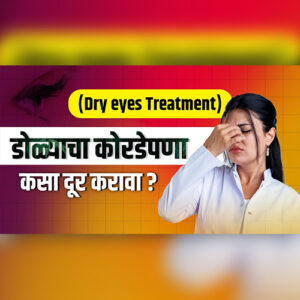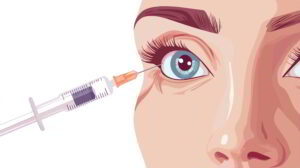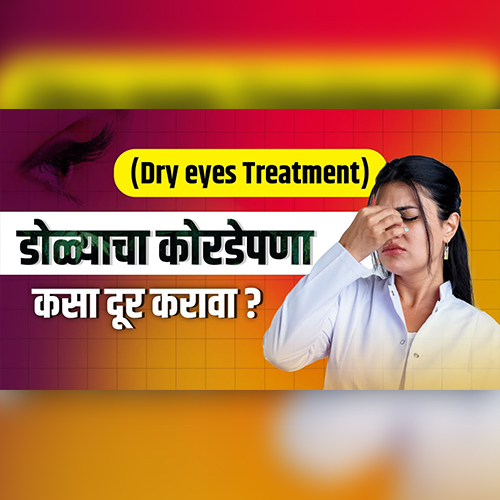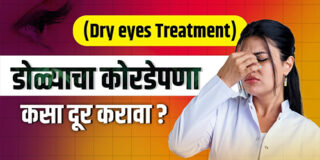Eye Allergies: Causes, Symptoms, and Treatments
Eye allergies, or allergic conjunctivitis, are on the rise, particularly in urban and semi-urban regions of India. With increasing exposure to environmental allergens such as dust, pollen, and pollution, many individuals are experiencing discomfort and seeking effective solutions. This condition, often triggered by seasonal changes or airborne irritants, can significantly impact daily life. Understanding the root causes, recognizing the symptoms, getting the best eye treatment services, and adopting preventive strategies are crucial for managing eye allergies effectively. In this comprehensive guide, we delve into everything you need to know about eye allergies, empowering you to protect your vision and maintain comfort in today’s challenging environment.
What Are Eye Allergies?
Eye allergies occur when your immune system mistakenly identifies harmless substances (allergens) as threats, triggering an inflammatory response in the eyes. This reaction leads to redness, itching, watering, and other discomforts. Eye allergies differ from eye infections as bacteria or viruses do not cause them and are not contagious. However, they can significantly impact your daily activities if left untreated.
Common Causes of Eye Allergies
Understanding what triggers your eye allergies is essential for effective management. Below are detailed insights into the primary causes:
1. Pollen
During spring and autumn, pollen from trees, grasses, and weeds is released into the air. Pollen is one of the most common allergens, particularly for individuals living in green or rural areas. Seasonal allergic conjunctivitis, also known as “hay fever eyes,” often peaks during these times.
2. Dust and Pollution
Indian cities, known for high levels of air pollution, expose eyes to dust, smoke, and particulate matter. Prolonged exposure can irritate the eyes and exacerbate allergic reactions, especially for individuals commuting in open or congested areas.
3. Chemical Irritants
Everyday household products like cleaning agents, perfumes, cosmetics, and aerosol sprays may contain chemicals that irritate sensitive eyes. Prolonged use of eye makeup or expired products can worsen the problem.
4. Contact Lenses
Contact lenses can trap allergens like pollen or dust, leading to prolonged exposure and irritation. Additionally, improper cleaning or extended use of lenses can increase the risk of eye allergies and infections.
Symptoms of Eye Allergies
Eye allergy symptoms often overlap with those of other eye conditions, but they are unique in some ways:
- Redness: Blood vessels in the conjunctiva become inflamed, giving the eyes a red appearance.
- Itching: Persistent itching is a hallmark symptom of allergic conjunctivitis.
- Tearing or Watering: The eyes produce excessive tears as a natural response to flush out allergens.
- Swelling of Eyelids: Puffy or swollen eyelids are common, especially after prolonged exposure to allergens.
- Sensitivity to Light: Allergic eyes may become more sensitive to bright light, causing discomfort.
- Blurred Vision: Although temporary, severe allergies can cause blurred vision due to swelling or excess tears.
If these symptoms persist for an extended period or worsen, it’s essential to seek medical attention to rule out other conditions.
Effective Treatments for Eye Allergies
Eye allergies can disrupt daily life, several eye treatment options can offer relief. Here’s a detailed breakdown:
1. Avoid Allergen Exposure
- Stay Indoors: During high-pollen seasons, limit outdoor activities, especially in the early morning when pollen levels are highest.
- Use Protective Gear: Wear sunglasses or eyeglasses to shield your eyes from dust, pollen, and wind.
- Air Purifiers: Invest in HEPA filters or air purifiers to reduce indoor allergens.
2. Over-the-Counter Eye Drops
- Artificial Tears: These can wash out allergens and provide moisture to soothe dry, irritated eyes.
- Antihistamine Drops: These relieve itching and redness by blocking the histamine response.
3. Prescription Medications
For more severe symptoms, an ophthalmologist may prescribe:
- Steroid Eye Drops: Effective for acute inflammation but should be used under strict medical supervision.
- Oral Antihistamines: These provide systemic relief from eye and nasal allergy symptoms.
- Mast Cell Stabilizers: Prevent the release of histamine and are often prescribed for long-term management.
4. Immunotherapy (Allergy Shots)
- Immunotherapy involves administering small doses of allergens over time to build tolerance. This method is particularly beneficial for individuals with severe or year-round allergies.
5. Cold Compresses
- Applying a cold compress to closed eyelids can help reduce swelling, redness, and itching, offering immediate relief.
6. Proper Lens Hygiene
- Always clean and store contact lenses as directed. Consider switching to daily disposable lenses to reduce allergen build-up.
Prevention Tips for Eye Allergies
Prevention plays a pivotal role in managing eye allergies. Here’s how you can minimise your risk:
- Wash Your Hands Frequently: This reduces the chance of transferring allergens to your eyes.
- Avoid Rubbing Your Eyes: Rubbing can worsen irritation and push allergens deeper into the eyes.
- Regular Cleaning: Vacuum carpets, dust furniture, and wash curtains regularly to reduce dust accumulation.
- Opt for Hypoallergenic Products: Use allergen-free makeup, skincare, and household products.
- Control Indoor Humidity: Maintain humidity levels between 30-50% to prevent mould growth.
When to See an Eye Specialist
Consult an eye specialist if home remedies and over-the-counter treatments do not improve your symptoms. Warning signs that require immediate medical attention include:
- Severe pain or redness that doesn’t subside.
- Persistent blurred vision or light sensitivity.
- Swelling that worsens over time.
At Nandadeep Eye Hospital, our ophthalmologist will perform a comprehensive eye examination and may recommend advanced treatments or tests to identify specific allergens.
FAQs on Eye Allergies
- Can eye allergies worsen over time?
Chronic exposure to allergens can exacerbate symptoms, but timely intervention and lifestyle changes can prevent this. - Are eye allergies seasonal?
While some allergies are seasonal (like pollen), others, such as dust or pet allergies, can occur year-round.
Eye allergies can range from mild discomfort to severe symptoms that impact your daily life. By identifying triggers, adopting preventive measures, and seeking timely medical care, you can manage your allergies effectively. Whether it’s protecting your eyes during allergy seasons or consulting a specialist for advanced care, prioritising eye health is essential.
If you’re struggling with persistent eye allergies, book an appointment with a top eye specialist today at Nandadeep Eye Hospital and take the first step toward allergy-free living!
More Posts

Eye Care for Diabetic Retinopathy: Diagnosis & Treatment

The Ultimate Guide to Preventing and Managing Dry Eyes Effectively

शासकीय नोकरीसाठी डोळ्याची दृष्टी नियमावली








